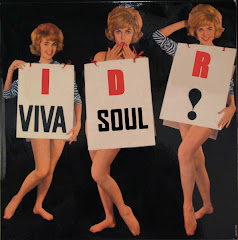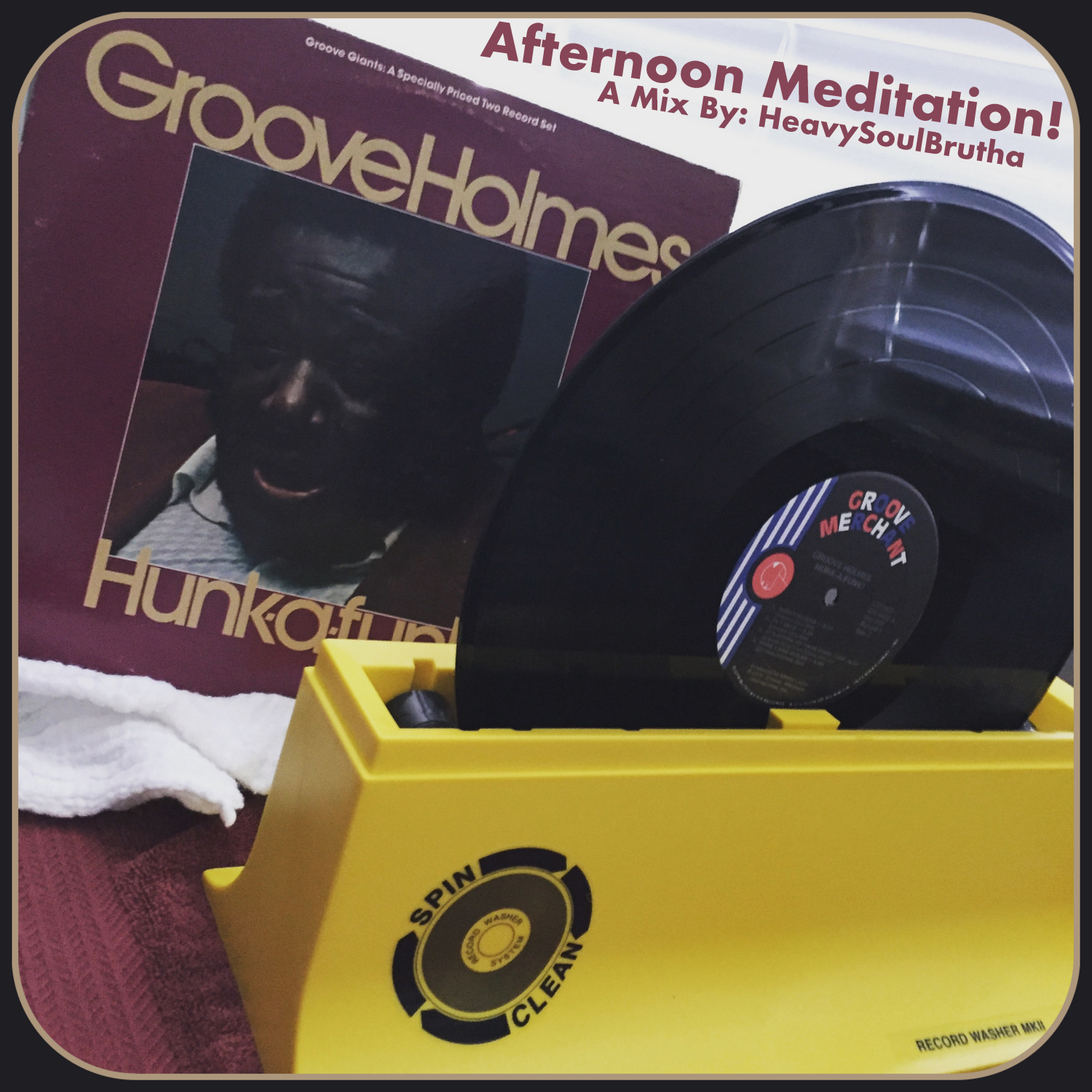 The tumultuous hit making career of Sly & The Family Stone continues to reverberate in every single genre of contemporary music – from pop and R&B to hip-hop and jazz – more than three decades after the group’s last appearance on the Top 40 charts.
The tumultuous hit making career of Sly & The Family Stone continues to reverberate in every single genre of contemporary music – from pop and R&B to hip-hop and jazz – more than three decades after the group’s last appearance on the Top 40 charts.The groundbreaking saga of Sly & The Family Stone was played out over the course of their seven original studio albums on Epic Records, recorded and released between 1967 and 1974: A WHOLE NEW THING (1967), DANCE TO THE MUSIC (1968), LIFE (1968), STAND! (1969), THERE’S A RIOT GOIN’ ON (1971), FRESH (1973), and SMALL TALK (1974). And now, 40 years on from Sly’s original signing to Epic, the catalog is being upgraded to a level worthy of these timeless classics.
For the first time, newly remastered, numbered expanded editions have been issued of all seven albums – with multiple (four to seven) bonus tracks on each CD (a total of 33 bonus tracks, 21 of them previously unreleased) and brand new liner notes written by some of today’s top music journalists. The seven albums have been manufactured in a strict limited edition run of custom digipaks, and they will not be re-pressed when they sell out.
All seven albums will arrived in stores on April 10th on Epic/Legacy, a division of SONY BMG MUSIC ENTERTAINMENT. Additionally, the seven titles will be available as a numbered, limited-edition box set.
I have picked out my favourite Sly albums from the series to review below.
 A Whole New Thing by Sly & The Family Stone was at the beginning of the funk revolution. A Whole New Thing comes with some bonus tracks, including the mono single versions (the ones released to AM radio were mono in those days) of "Underdog" and "Let Me Hear It From You", two extra tracks not originally on the album - "Only One Way Out Of This Mess" and "What Would I Do", and an unreleased instrumental called "You Better Help Yourself".All I can say is that you better help yourself to some of these discs.
A Whole New Thing by Sly & The Family Stone was at the beginning of the funk revolution. A Whole New Thing comes with some bonus tracks, including the mono single versions (the ones released to AM radio were mono in those days) of "Underdog" and "Let Me Hear It From You", two extra tracks not originally on the album - "Only One Way Out Of This Mess" and "What Would I Do", and an unreleased instrumental called "You Better Help Yourself".All I can say is that you better help yourself to some of these discs. Thirty years ago Sly & The Family Stone released A Whole New Thing and changed the face of Rhythm and Blues music.  In the original liner notes to their second album, Dance To The Music, New York DJ Al Gee describes their sound as "the closest thing yet to a new musical religion!", and he's not that far off. Stone's songwriting had improved, and his vision began to take flight, particularly on the smash hit title track, whose themes are expanded upon in a 12-minute workout called "Dance To The Medley." Fuzztone and wah-wah guitar sounds are added to the mix with Sly's sister Rose on keyboards allowed Sly to switch between keyboards and guitar, his primary instrument.
In the original liner notes to their second album, Dance To The Music, New York DJ Al Gee describes their sound as "the closest thing yet to a new musical religion!", and he's not that far off. Stone's songwriting had improved, and his vision began to take flight, particularly on the smash hit title track, whose themes are expanded upon in a 12-minute workout called "Dance To The Medley." Fuzztone and wah-wah guitar sounds are added to the mix with Sly's sister Rose on keyboards allowed Sly to switch between keyboards and guitar, his primary instrument.
 In the original liner notes to their second album, Dance To The Music, New York DJ Al Gee describes their sound as "the closest thing yet to a new musical religion!", and he's not that far off. Stone's songwriting had improved, and his vision began to take flight, particularly on the smash hit title track, whose themes are expanded upon in a 12-minute workout called "Dance To The Medley." Fuzztone and wah-wah guitar sounds are added to the mix with Sly's sister Rose on keyboards allowed Sly to switch between keyboards and guitar, his primary instrument.
In the original liner notes to their second album, Dance To The Music, New York DJ Al Gee describes their sound as "the closest thing yet to a new musical religion!", and he's not that far off. Stone's songwriting had improved, and his vision began to take flight, particularly on the smash hit title track, whose themes are expanded upon in a 12-minute workout called "Dance To The Medley." Fuzztone and wah-wah guitar sounds are added to the mix with Sly's sister Rose on keyboards allowed Sly to switch between keyboards and guitar, his primary instrument.Dance To The Music was also groundbreaking in its sound. At a time when most black music was still heard on AM radio, Dance To The Music, with its hard left-and-right panning and complete separation, is quite possibly the first soul record designed to be heard in FM stereo, something A Whole New Thing merely hinted at.
 On "Stand!" - released in 1969 - Sly's songs definitely displayed far greater melodic appeal. His lyrics added elements of social consciousness to the already developed topics of unity and integration. There is also greater diversity here than on previously released albums. As a result, four out of the eight tracks featured on the album were hit singles.
On "Stand!" - released in 1969 - Sly's songs definitely displayed far greater melodic appeal. His lyrics added elements of social consciousness to the already developed topics of unity and integration. There is also greater diversity here than on previously released albums. As a result, four out of the eight tracks featured on the album were hit singles.The excellent title track, with its gospel overtone and socially conscious lyrics is impressive; it reached #22 on the US pop singles charts.
An edited version of the 5'22" "I Want to Take You Higher" - which underpinned inspired vocals with a fantastic Freddie Stone electric guitar riff and incisive horns parts - made it to #60 at the time of release but reached #38 after its re-release in the wake of Woodstock.
"Everyday People" made it to #1 on the strength of his widely appealing vocals and a simple, very appealing tune. This groovy track flows along effortlessly.
The album itself reached #13 on the US LP pop charts (where he would stay for about two years!) The rest of the tracks are also quite distinctive and sometimes on a par with the singles. - "Don't Call Me Nigger, Whitey" - a jam drawn to almost 6 minutes - endlessly repeats the title and its converse phrase convincingly. You cannot miss the message. - The lengthier jam, clocking in at 13'52" is an instrumental title "Sex Machine" (not the James Brown track) which features a very heavy groove, mixing powerful bass with prominent use of Jimi Hendrix inspired wah-wah guitar.
The album ends with another good track, the optimistic "You Can Make It If You Try", which is a highly rhythmic with a catchy chorus.
This is truly one of the most innovative 60's albums, irrespective of genre.
 Despite the familiar presence of a leaping, smiling Sly Stone on the cover of Sly & The Family Stone's sixth album, Fresh, there was no doubt that this was not the same group that recorded such exuberant hits as "Everyday People" and "Thank You (Falettinme Be Mice Elf Agin)." If there had been any doubt that the darker outlook of 1971's There's A Riot Goin' On, released two years earlier, was a one-off, Fresh removed it.
Despite the familiar presence of a leaping, smiling Sly Stone on the cover of Sly & The Family Stone's sixth album, Fresh, there was no doubt that this was not the same group that recorded such exuberant hits as "Everyday People" and "Thank You (Falettinme Be Mice Elf Agin)." If there had been any doubt that the darker outlook of 1971's There's A Riot Goin' On, released two years earlier, was a one-off, Fresh removed it. That Sly was the only band member to appear on the cover should have been a tip-off to the changes within. Drummer Greg Errico and bassist Larry Graham had departed and been replaced, respectively, by Andy Newmark and Rusty Allen. The move allowed Stone to continue the elastic funk explored on Riot.
The album contains sparse, deep grooves with Sly as the clear focal point. And yet, Fresh is an extraordinary album, and holds up very well against their earlier groundbreaking work.















































No comments:
Post a Comment